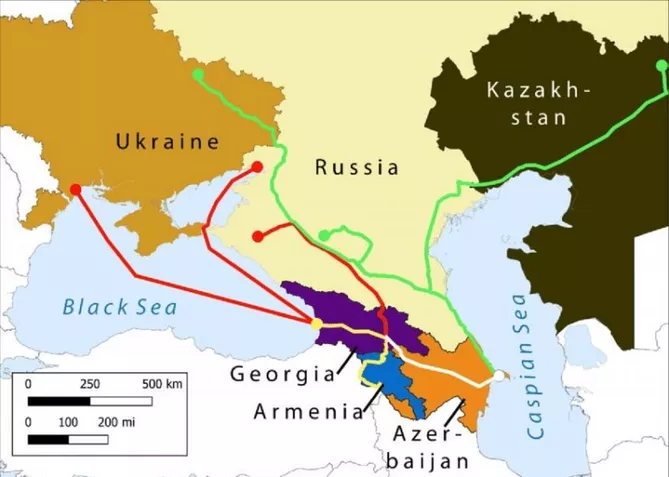
photo: TuraNews.kz
When news emerged that Russian and Kazakh grain had begun entering Armenia through the territory of Azerbaijan, many treated it as a logistical detail. But for me, it is far more significant than a simple transport route or trade arrangement. This development marks a turning point - a signal that the region is entering a new phase where pragmatism and cooperation begin to outweigh fear, historical trauma, and inherited hostility.
The delivery of grain through Azerbaijan is a strategic precedent. It demonstrates that even without a formally finalized peace treaty, it is still possible to cooperate based on mutual benefit and rational calculation. This step carries political meaning - it shows that the sides are capable of acting beyond emotional or ideological reflexes. It carries economic importance, as reducing transportation costs benefits everyone involved. And it carries symbolic weight - for the first time in decades, a route is functioning not around someone, but through.
Naturally, not everyone received the news calmly. In Armenia, opposition groups rushed to frame it as a danger, even invoking absurd claims about “potentially poisoned grain.” But such statements are not about facts; they are about fear and about maintaining political narratives built on confrontation. Let me be clear: President Ilham Aliyev would never allow harmful or low-quality products to enter another country through Azerbaijan. That is not flattery; that is a fact grounded in an understanding of how political responsibility functions at this stage. Such decisions are never accidental. They are negotiated, verified, and intentional.
That is why I see this development as a victory for both societies. Because trust is not created by declarations; it is built step by step, quietly and consistently.
Of course, distrust has not vanished. It still lives in speeches, on social media, and within public narratives. And this reality cannot be ignored. A ceasefire is not peace. Peace begins when fear stops being the primary explanation for policy choices. And to move toward that future, we must change the language we use when speaking about one another. The rhetoric of threat and dehumanization must gradually be replaced with language rooted in facts, transparency, and respect. Hate speech must disappear from public discourse - not because it is politically fashionable, but because it is toxic for our future.

Photo: researchgate.net
Communication is essential. Without direct engagement between people, societies, and professional communities, political progress will remain fragile. Journalists, analysts, academics, cultural figures, and human rights advocates must all engage in meaningful dialogue - real dialogue, not filtered through propaganda or political agendas. Because when people meet face-to-face, the artificial image of “the enemy” begins to collapse.
Economics can become the next anchor point. Our region has enormous potential for cooperation. There are sectors where mutual benefit is not theoretical but obvious: transportation corridors, logistics, energy (including renewables), agriculture, tourism, IT, and innovation. These sectors complement each other and can create a landscape where conflict is costly and cooperation is rational.
Sometimes people ask me what I can do personally. I am not a politician, diplomat, or negotiator. But I have one tool - words. And I use it in three ways: by sharing factual and balanced information, by creating media spaces where Armenian and Azerbaijani journalists can speak without propaganda pressures, and by promoting human-centered storytelling, because sometimes a single story can change more minds than a political summit.
This journey has not been easy. There were threats, pressure, and attempts to silence me. Yet I continued, and today, I can see the results. In the last 28 days alone, my content has reached nearly 20 million views on Facebook, and 70% of those viewers were Armenian. On YouTube, the numbers are close to five million. These figures matter not as a measure of popularity, but as proof that people are ready to hear something other than hate. People are tired of war, even if they do not always admit it aloud yet.
For too long, we lived in the mindset of “either us or them.” But the region can live differently - in a mindset of “us and them,” together. Today’s grain transit is not just a delivery; it is the beginning of a new chapter - a slow and complicated one, but a necessary one.
And so, I sincerely thank President Ilham Aliyev and Prime Minister Nikol Pashinyan - not for symbolic gestures, but for creating conditions in which the future becomes possible.
Peace does not begin the moment a document is signed.
Peace begins the moment a society stops being afraid of it.
And no matter how difficult it is to believe - that moment has already begun.
Share on social media